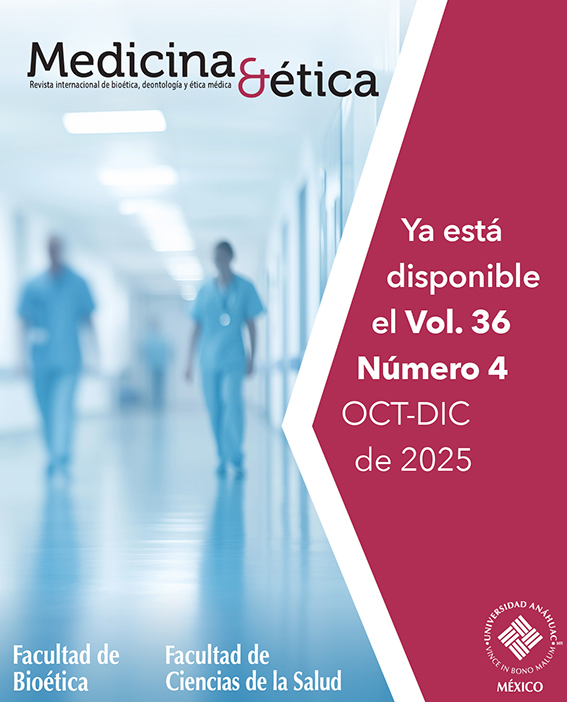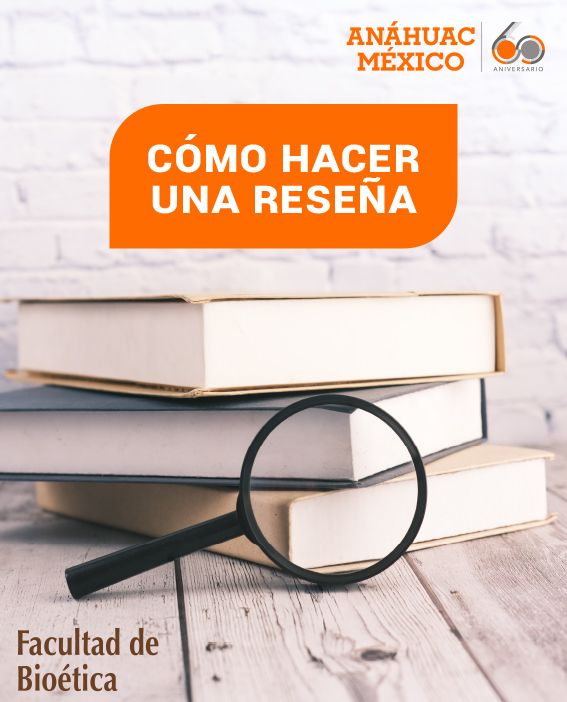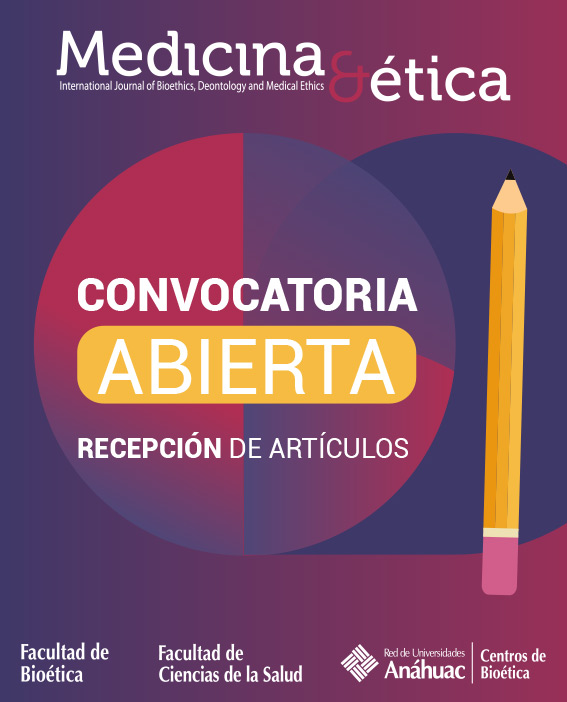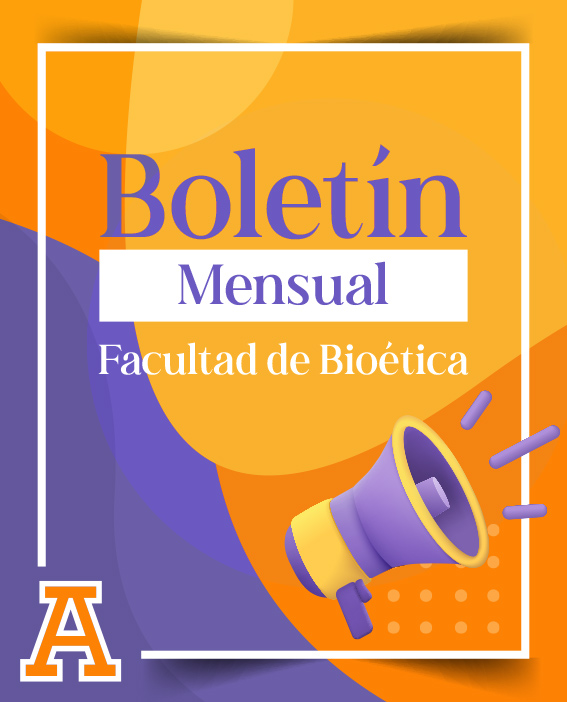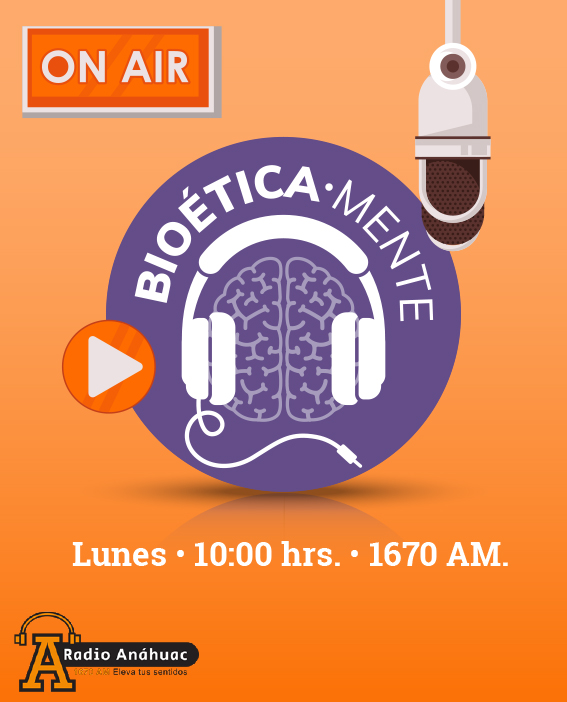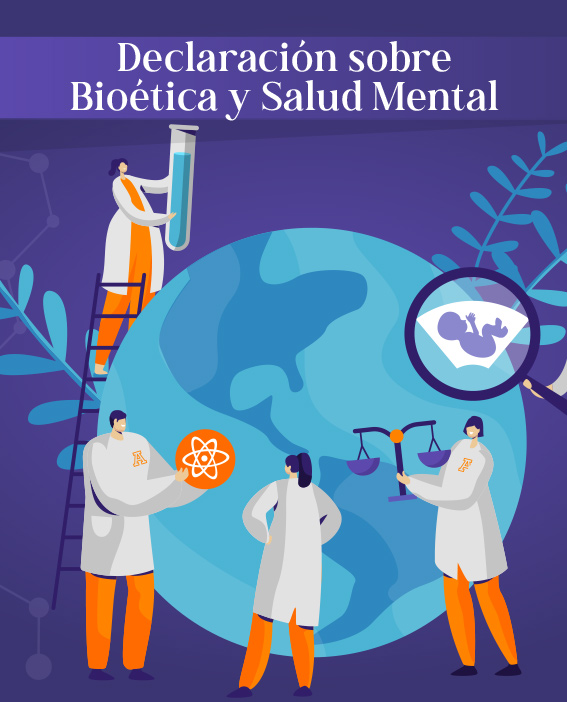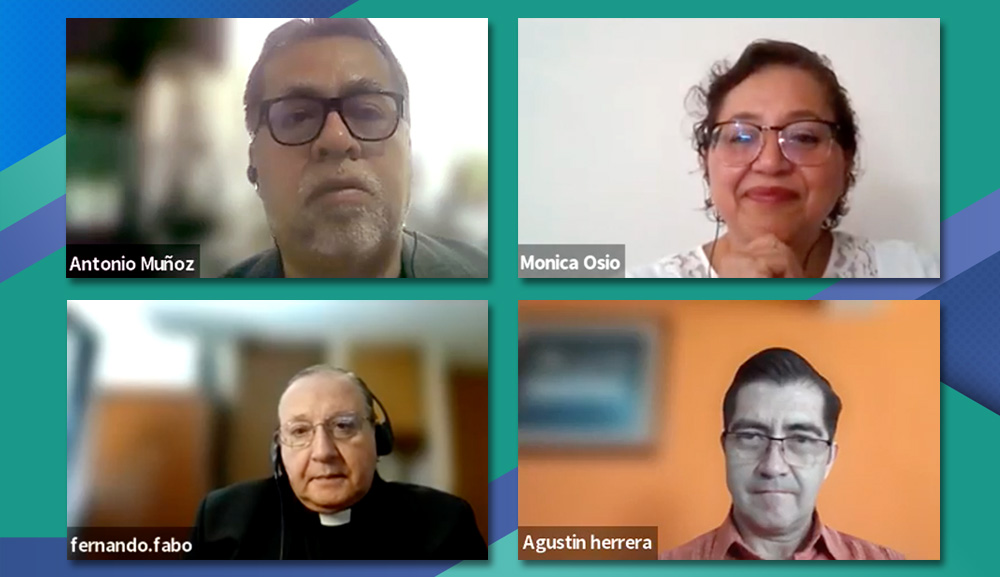
With a specific clinical case that occurred in Peru, academics from our Faculty of Bioethics offered arguments from a medical, bioethical and legal point of view.
On May 7, the webinar "Euthanasia and professional identity of the doctor" was held, an activity coordinated by Dr. Claudia María Casas Nader, head of the Bioethics Centers of the Anahuac University Network (RUA), and in which Dr. Mónica Osio Saldaña, palliative care specialist and student of our Master's in Bioethics, participated; Father Fernando Fabó Martín, LC, director of the Faculty of Bioethics, and Dr. Agustín Herrera Fragoso, associate researcher of said Faculty.
For the inauguration, Dr. Antonio Muñoz Torres, coordinator of Bioethics at our University, was the moderator, who read the case and later gave rise to the intervention of the three expert academics to understand the arguments from a medical, bioethical and legal point of view.
The case under discussion was about a Peruvian woman with poliomyelitis and dermatomyositis acquired at an early age, where because of the progressive deterioration of her functionality, multiple interventions were performed until almost total dependency. The patient subsequently requested that euthanasia be performed in a country where it is prohibited.
Dr. Osío began her presentation by clarifying the concepts and terms of these diseases from a medical point of view and read the evidence, recognizing the limits of the interventions, as well as the possible complications. Later, he explained the definition of Palliative Care in the 21st century as: "Active holistic care of people of all ages with severe suffering, in relation to health, due to serious illness and especially those who are near the end of life.”.
Emphasizing with the above, the importance of a patient-centered care model, where decision-making is carried out together. He added that: “the role of the doctor in the process of death is not to anticipate, but rather to accompany the process in the most humane and dignified way”
In closing, he highlighted the need to balance technique, knowledge and ethics and ask ourselves if they make sense when applied to a way of acting. Avoiding, thus, using medicine and technology indiscriminately to justify our lack of acceptance in the face of death.
In the second panel, He P. Fernando Fabó L.C, made an approach from the bioethical point of view centered on the person. The first consideration mentioned was to place the case in its media context, since it is already a decontextualized case, and it is applied to very diverse realities in different countries. The second consideration is to consider the subjects involved, encompassing the term "compassion" as a virtue found in the will and understanding, which leads to pity someone and not to part with someone. Achieved through concrete actions that lead to pain relief.
Likewise, he mentioned as a third consideration the importance of not forgetting that the purpose of an act is different from its intention. And he emphasized with the phrase “Non Nocere” which means “Do Not Do Evil”, adding the principle of ethics “Do Good”; that it is not enough just not to do evil, but also to do good to the patient and his family.
To close his speech, Fr. Fabó invited us to reflect on the great opportunity we have for growth as professionals, leaving evidence-based medicine and focusing on a humanitarian medicine capable of managing pain more effectively, but also capable of accompanying the patient and his family, leading them to a fullness of life and in turn death.
To conclude, Dr. Agustín Herrera Fragoso in the third panel, spoke to us from the legal point of view and its transcendental importance. Since social norms limit our actions or indicate how far we can go, it is important to know the plane in which we find ourselves.
He began by exposing the current context, since we live in a light, fluid, and mobile world, where the therapeutic part is disfigured to address an aesthetic part. Consequently, he mentioned that: “It is difficult to die in a world in which the end of life and the conclusion have been displaced by an endless race, aimlessly, creating a paradigm aimed at euthanasia or assisted suicide, in a disfigured sense of human existence and spirituality. He explained that euthanasia at the legal level "is the action of the doctor who deliberately causes the death of the patient"
Subsequently, he mentions the confusions in terms such as dignified death, dignity, compassion, among others, where interpretation is what sets the tone for understanding. Adding and explaining terms such as therapeutic obstinacy and the characteristics of Human Rights, mentioning their respective legal framework.
To close the Webinar, Dr. Herrera, highlights with a phrase the human, ethical and supportive character of palliative care, which updates human nature at the end of life and provides "dignified conditions in the process of death”. Reiterating that euthanasia is not the same as terminal sedation in Palliative Care.
You can see the Webinar in the following link: Eutanasia e identidad profesional del médico
Más información:
MPSS Marcela Garibay
Facultad de Bioética
bioética@anahuac.mx

